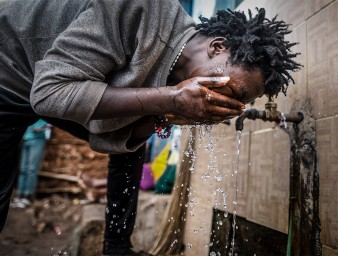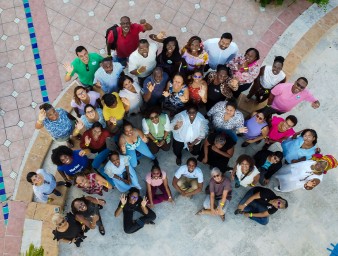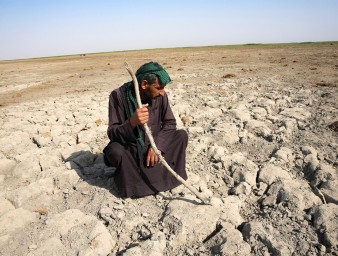Children’s voices must be heard on climate crisis
20 September 2023
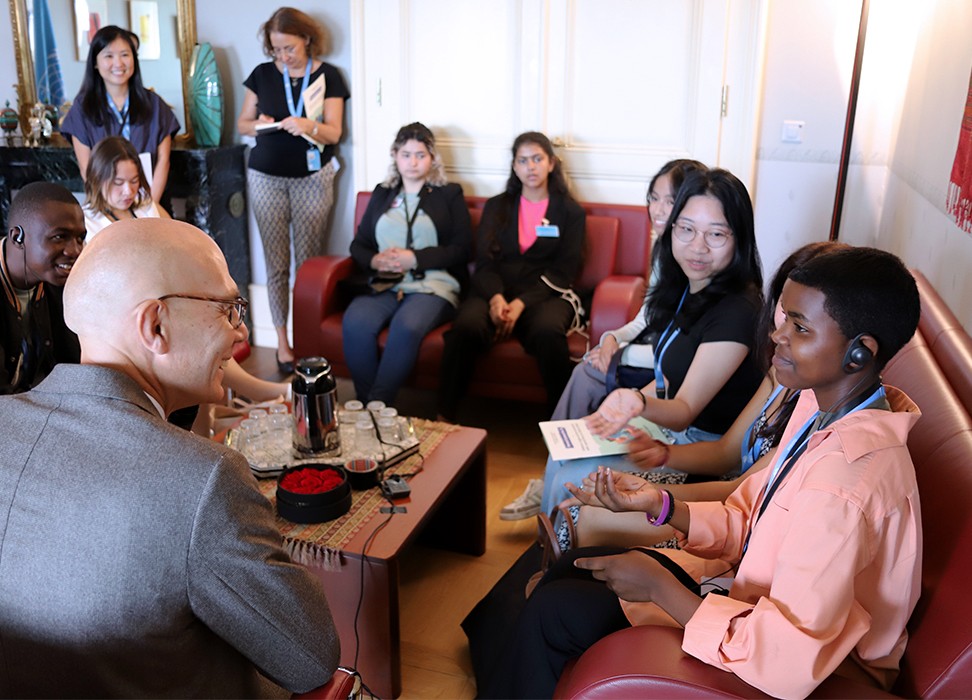
“Children of the world are calling for action and we demand that governments address the climate crisis now,” urged Aniva, 17, from the Pacific Islands.
Esmeralda, 16, from Peru, said environmental crimes were killing nature and humanity, and pointedly asked the audience: “Is money more important than the environment?”
Kartik, 17, of India, said the planet and children’s rights stand at a critical juncture: “The clock is not merely ticking; it is sounding a clarion call for immediate, resolute action.”
Aniva, Esmeralda and Kartik are child advisors of the UN Committee on the Rights of the Child. They spoke during the launch of a far-reaching opinion by the Committee, which said States have a legal obligation to protect children from environmental degradation and the adverse effects of climate change.
In a milestone 20-page General Comment, the Committee said children have the right to a clean, healthy and sustainable environment, and that this is implicit in the Convention on the Rights of the Child.
The Committee’s General Comment comes as young people around the world emerge at the forefront of the battle to protect the planet and are increasingly taking governments and businesses to court for failing to protect their human rights from harms caused by the climate emergency.
Access to justice and remedies
Drawn up with the help of children from across the world, General Comment No. 26 on children’s rights and the environment with a special focus on climate change also said that children are entitled to participate in environmental decision-making processes and called on States to provide access to justice for children, allowing children to seek legal recourse in court.
“We have said clearly that children have a right to a clean, healthy and sustainable environment, and that this right is embedded in the Convention on the Rights of the Child, which has already been ratified by 196 states,” said Ann Skelton, Chair of the Committee on the Rights of the Child.
Skelton said the General Comment’s impact could be far reaching, from expanding the participation of children in the climate debate to forcing governments to conduct child-impact assessments on legislation and policy related to the environment, to having business step up its responsibility in finding solutions.
“This is an authoritative interpretation of the Convention of the Rights of the Child and it could be used by States to develop laws and policies and also become a source of international law,” said Skelton, adding the opinion recognizes children’s right to go to court to force governments to take action on climate change.
In particular, the General Comment states: “Children should have access to free legal and other appropriate assistance, including legal aid and effective legal representation, and be provided the opportunity to be heard in any judicial or administrative proceedings affecting them.”
The opinion adds that to limit the financial risk to children who bring cases in the public interest regarding environmental matters States should consider “additional measures to lower the costs for children seeking remedies.”
Agents of change
From Portugal to Indigenous communities in Australian to the U.S. state of Montana, a growing generation of young human rights defenders are taking the lead in climate litigation to hold governments and business accountable.
Volker Türk, UN High Commissioner for Human Rights, said children were stepping forward as “agents of change,” calling on those in power to act with the urgency and ambition necessary to tackle global environmental harm.
“Children are at the forefront of a wave of ground-breaking litigation around the world that has the potential not only to ensure greater accountability on the part of governments and business, but also to trigger fundamental shifts in approach,” Türk said.
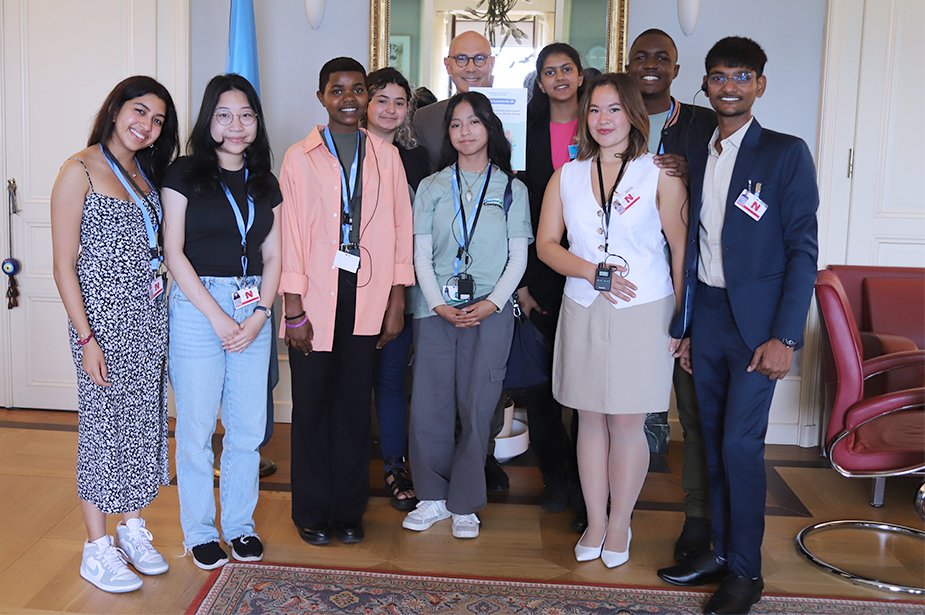
Child advisors of the Committee on the Rights of the Child meet with the UN High Commissioner for Human Rights, Volker Türk in Geneva. © Petre Oprea/OHCHR
To inform the content of the General Comment, the Committee launched a series of consultations, including from children and expert thematic workshops. More than 16,000 children in 121 countries took part in the consultations for the General Comment.
“Eco-anxiety” and depression
In the document, the Committee said countries should address the link between environmental harm and children's mental health, such as depression and “eco-anxiety,” both in terms of response and prevention programmes by public health and education authorities.
It also said that environmental degradation, including the climate crisis, was “a form of structural violence against children,” and that this was impacting an array of children’s rights, including the right to health, to education, to an adequate standard of living, and to play and rest.
Speaking before the Committee, George, a 16-year-old child advisor, said the rights of more than 90,000 children in his hometown of Kabwe in the heart of Zambia are being impacted negatively by pollution, with lead levels in their blood as much as nine times the lead limit cited by the World Health Organization.
“Lead affects children in so many ways; it lowers the IQ, affects the sexual reproductive health and development, and in some unfortunate cases can lead to death,” he said.
However, the mood among the child advisors was one of pride and celebration.
Madhvi, a 12-year-old from the US who described herself as a “climate warrior” said it was really exciting to see how many children around the world had participated in the Committee’s document. Elisabeth, 17, from Rwanda, said she hoped a child-friendly version of the General Comment would spur more children to make positive change, while Maya-Natuk, 17, from Greenland, said children and adults were now responsible for implementing the General Comment.
Olt, a 17-year-old from Kosovo[1], summed up the spirit of the young human rights defenders in the frontlines of environmental crises.
“The future is ours,” he said. “We will make a better future, we will make a sustainable and eco-friendly future.”
[1] All references to Kosovo should be understood to be in the context of United Nations Security Council resolution 1244 (1999).
